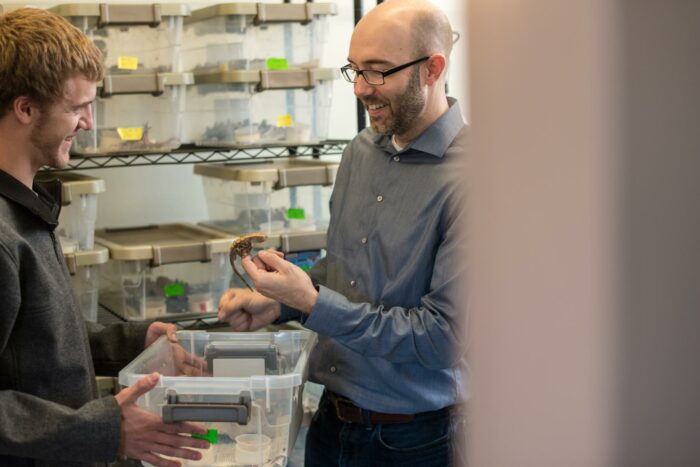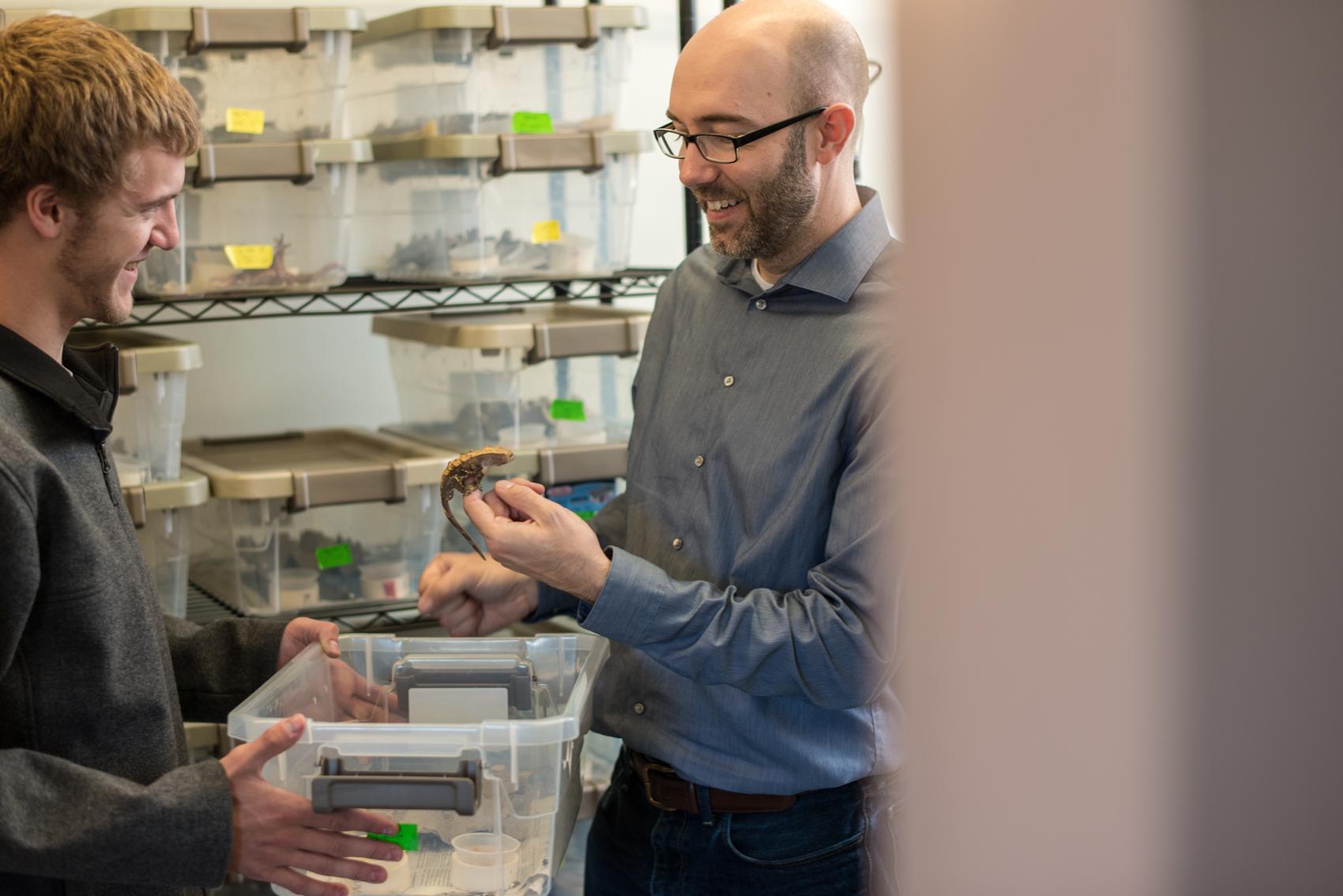 Dr. Tony Gamble, associate professor of biological sciences in the Klingler College of Arts and Sciences, has been awarded a $1.1 million subaward from the National Science Foundation as part of a research team, “Integration Institute: Sex, Aging, Genomics, and Evolution (IISAGE),” led by colleagues at the University of Alabama at Birmingham (UAB) to better understand aging differences between females and males.
Dr. Tony Gamble, associate professor of biological sciences in the Klingler College of Arts and Sciences, has been awarded a $1.1 million subaward from the National Science Foundation as part of a research team, “Integration Institute: Sex, Aging, Genomics, and Evolution (IISAGE),” led by colleagues at the University of Alabama at Birmingham (UAB) to better understand aging differences between females and males.
The award, which has an expected value of $12.5 million over five years, will establish the IISAGE Biology Integration Institute and use an interdisciplinary approach to define the rules that govern how sex differences in aging arise and evolve. IISAGE engages investigators from around the country, including Marquette, UAB, Brown University, Cornell University, Michigan State University, University of Houston, University of Kansas and University of Maryland.
“These Biology Integration Institutes are interdisciplinary teams of scientists investigating a particular topic across multiple levels of biological organization, from molecules to cells up to individual organisms and ecosystems. The institutes also train future scientists for careers in a world where science is increasingly interdisciplinary. I’m excited to be included in the institute where I have an outstanding team of collaborators and can move my research in a new direction investigating sex differences in aging”
Gamble’s research will focus on the ways that genetic differences between males and females, such as sex chromosomes, impact aging and lifespan. He will also study how repeatable, fixed, and/or easily altered sex-specific mechanisms of aging and lifespan are across animals.
“This subaward is a testament to the stellar reputation of Dr. Gamble and his lab in the field of evolutionary biology,” said Dr. Heidi Bostic, dean of the Klinger College of Arts and Sciences. “What’s particularly fascinating is that while Dr. Gamble’s research has focused primarily on snakes and lizards, this project could yield some crucial future insights for humans.”
UAB announced the award in September with principal investigator, Dr. Nicole Riddle, associate professor of biology in the UAB, explaining IISAGE plans to develop predictive models through novel analysis tools and hundreds of matched datasets profiling gene expression to determine how genome architecture, organismal biology and phenotypic plasticity generate differences in aging. Ultimately, she said, it may help researchers identify ways to potentially control differences in aging between females and males.
Gamble’s lab at Marquette investigates the developmental and evolutionary processes that generate biological diversity with an emphasis on the evolution of sex chromosomes and sex determining mechanisms. Gamble was a recipient of a $1.17 million grant from the National Science Foundation in August to study sex chromosome evolution in lizards and snakes.



